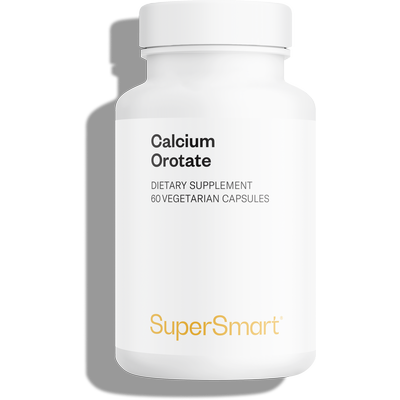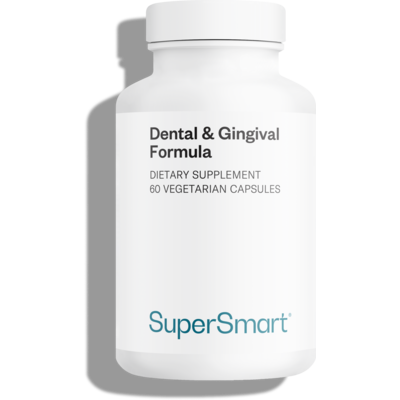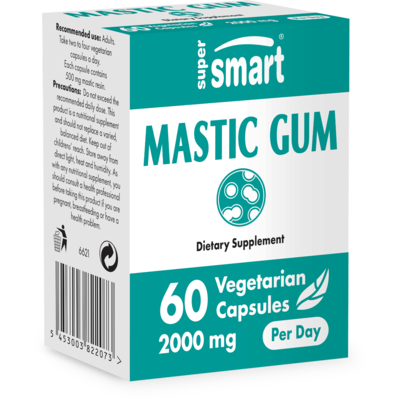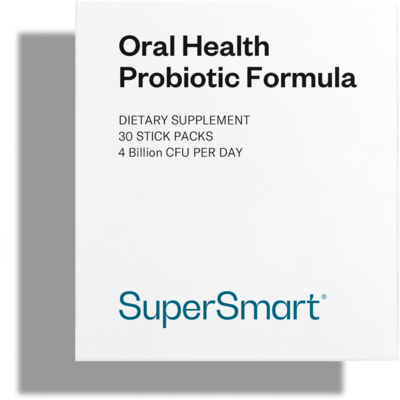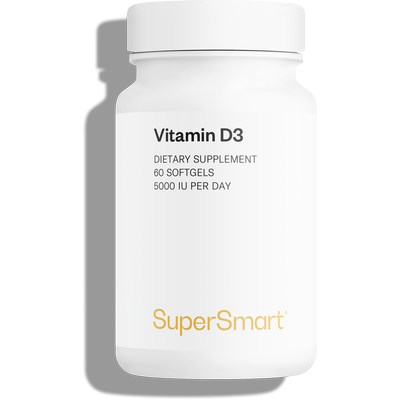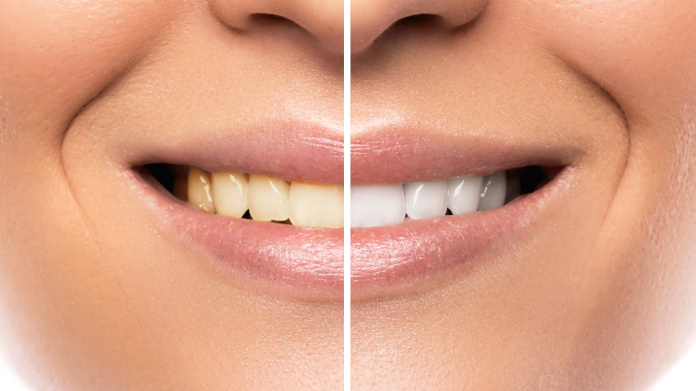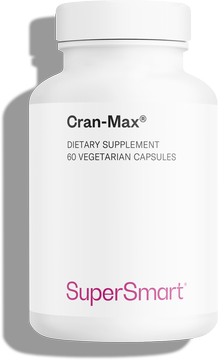10 Tips for Naturally Maintaining Healthy, White Teeth*
Looking for natural ways to maintain the brightness and health of your teeth? Check out our 10 tips for a radiant, confident smile.*
Brushing Your Teeth: Try the BROS Method
Caring for your teeth begins with effective brushing, a fundamental step in maintaining good dental hygiene.
Current guidelines recommend brushing your teeth at least twice a day for 2 minutes each time.
To help perfect your tooth-brushing technique, keep in mind the acronym BROS, which stands for:
- Brush: Brush your top and bottom teeth separately.
- Rotate: Use a rotating motion, starting at the gum line and moving toward the tip of the tooth.
- Oblique: Hold your toothbrush at a 45° angle to the gums.
- Systematic: Follow a consistent pattern, brushing the outer, inner, and chewing surfaces of each tooth.
It is also recommended to use a fluoride toothpaste and change your toothbrush every three months.*
Tips on Foods to Limit for a Brighter, Healthier Smile*
Sweets, fizzy drinks, chocolate bars … It’s no surprise that sugary treats aren’t your teeth’s best friends. When sugar interacts with the bacteria in your oral flora, it’s broken down into acids that can weaken tooth enamel. That’s why it’s wise to enjoy sugary foods sparingly.
To help keep your teeth white and free from stains, try to limit foods and drinks high in tannins, like wine, red fruits, tea, and coffee. There’s no need to avoid them entirely—just try to remember to rinse your mouth after consuming them.
Why is Calcium Essential for Your Oral Health?*
Did you know that nearly 99% of the body’s calcium is stored in the bones and teeth? As such, it’s no surprise that it plays an essential role in supporting healthy teeth.* You can find calcium in foods like dairy products, cruciferous vegetables, and almonds.
If you’re looking to increase your calcium intake, consider a supplement like calcium orotate, a highly bioavailable form that’s easy for the body to absorb (such as Calcium Orotate).*
Using Lemon and Baking Soda for Natural Dental Care*
Your kitchen cupboard might hold some surprising ingredients for enhancing your smile—products like lemon and baking soda are often used for their natural polishing and descaling properties.*
Simply add a few drops of lemon juice and a pinch of baking soda to your toothpaste. However, be cautious—this technique should be used sparingly, no more than once a week, as frequent use may damage tooth enamel.
Maintain a Healthy Intake of Vitamin C*
You’re probably familiar with vitamin C’s role in supporting your immune system, but did you know it also benefits your smile? Vitamin C contributes to normal collagen production thus maintains health teeth*.
To naturally maintain healthy, white teeth, it’s important to include a variety of fresh fruits and vegetables in your diet, such as citrus fruits, kiwi, peppers, baby spinach, and broccoli. If you’re looking to increase your intake, dietary supplements like Liposomal Vitamin C can be a convenient option.*
Use Dental Floss to Reach Hard-to-Clean Areas*
Some areas of the mouth are difficult to clean with a standard toothbrush, allowing food particles to accumulate unnoticed. Over time, this can contribute to the buildup of plaque.
The solution is to remove trapped debris by using dental floss after brushing your teeth at night. Gently slide the floss between each tooth without forcing it, ensuring a thorough clean in hard-to-reach areas.
The Role of Magnesium in Supporting a Healthy Smile*
What do cocoa, sesame, almonds, and bananas have in common? They are all rich in magnesium. Approximately 60% of the body’s magnesium is stored in bones, where it plays a role in helping to maintain healthy teeth.* However, magnesium levels can be depleted more quickly in individuals who engage in intense physical activity or experience high stress.
For those with increased magnesium needs, it may be beneficial to consider magnesium supplementation. A product like Multi Magnesium Formula, which contains 8 forms of highly bioavailable magnesium, can help support optimal levels.*
Avoid Smoking to Maintain a Bright Smile*
In addition to its well-known harmful effects on the lungs and arteries, smoking can also negatively impact oral hygiene.
In addition to staining tooth enamel yellow, particularly on the incisors, smoking also weakens the periodontium, the tissues responsible for providing essential support to the teeth. Furthermore, it contributes to persistent bad breath.
Why Adequate Vitamin D Intake Matters for Your Teeth*
During the summer, our bodies can synthesize vitamin D from exposure to the sun’s UV rays. However, in winter, levels tend to be lower. Together with calcium, vitamin D plays a key role in maintaining healthy teeth*.
Found in foods such as eggs, oily fishes, mushrooms, and dairy products, vitamin D can also be obtained through supplementation (for example, with Vitamin D3 5000 IU).*
Don’t Skip Your Annual Dentist Appointment*
Although it may not be eagerly anticipated, an annual dental visit is vital for the early detection of potential dental issues and for receiving personalized advice on optimal oral care practices.
While waiting for your next dental appointment, consider adopting the healthy habits outlined in this article.* To support your oral health, you can find many of the essential vitamins and minerals mentioned above in the multivitamin supplements Daily 1 or Daily 3. A great way to help maintain your oral well-being every day.*
Explore our range of probiotics for digestive health and transit, as well as our dietary supplements for liver support and detoxification.

